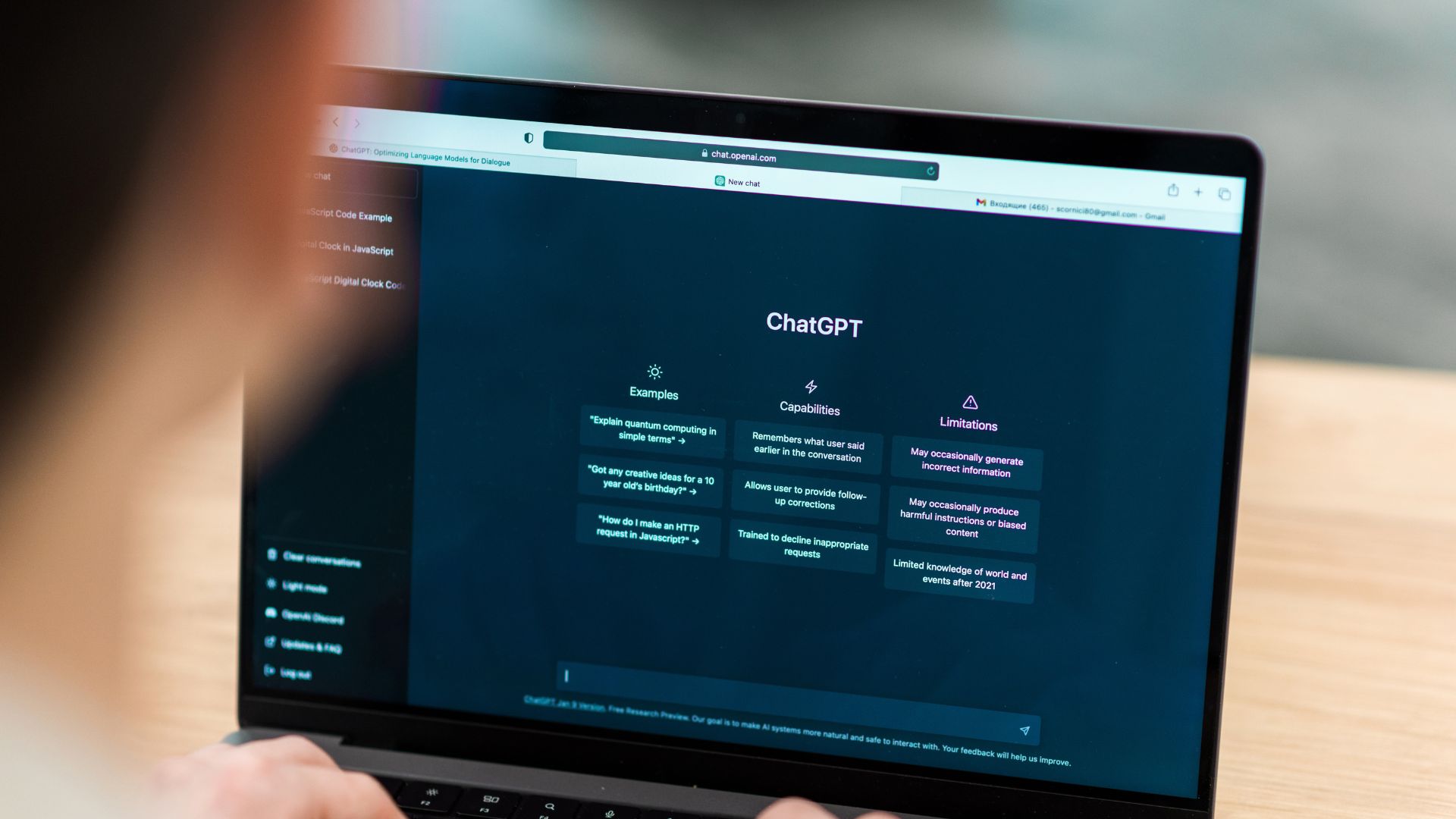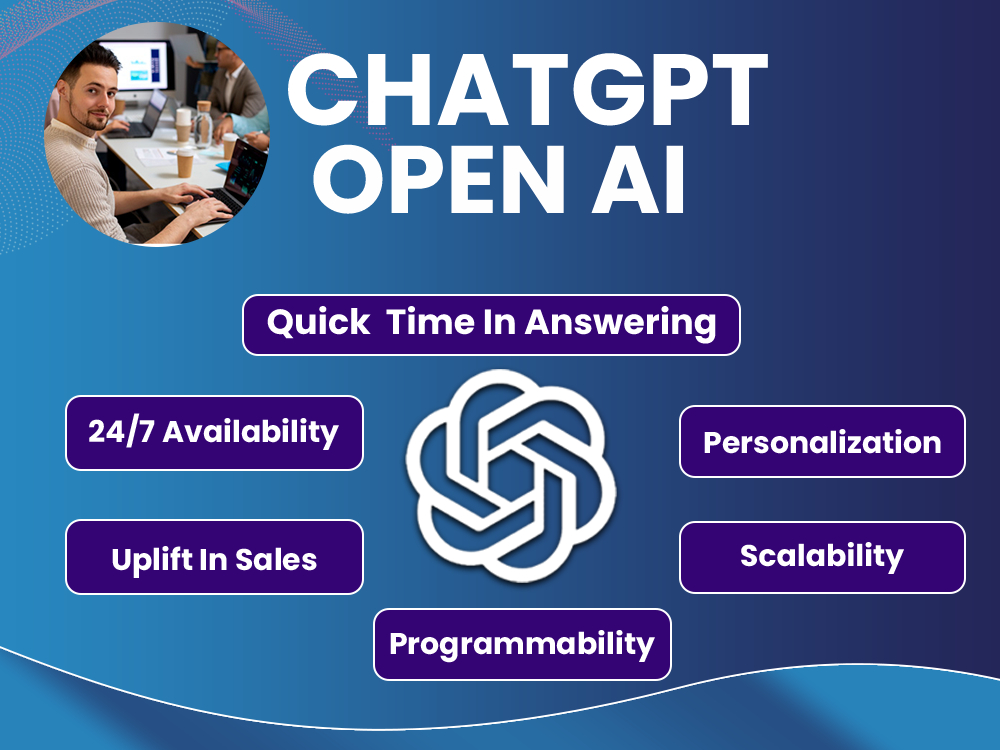
Exploring ChatGPT’s Impact on Businesses reveals a profound shift in the way modern enterprises operate and engage with customers. ChatGPT, powered by OpenAI, represents a significant advancement in natural language processing, enabling businesses to automate tasks, improve communication, and deliver personalized experiences at scale. Its impact spans across various aspects of business operations, from customer support to content creation and data analysis.
In customer support, ChatGPT empowers businesses to provide instant responses to inquiries, resolve issues efficiently, and offer round-the-clock support through chatbots and virtual assistants. This not only enhances customer satisfaction but also reduces response times and operational costs. Moreover, ChatGPT’s ability to understand and generate human-like responses enables businesses to maintain consistent and engaging interactions across different channels, fostering stronger relationships with their customers.
Beyond customer support, ChatGPT revolutionizes content creation by generating high-quality text tailored to specific needs. From blog posts and product descriptions to marketing copy, businesses can leverage ChatGPT to produce content quickly and effectively, freeing up human writers to focus on more strategic tasks. This not only saves time and resources but also ensures consistency and relevance in messaging, ultimately driving engagement and conversion rates.
In addition to customer-facing applications, ChatGPT plays a crucial role in data analysis, extracting insights from large volumes of textual data to inform decision-making and strategy development. By analyzing customer feedback, social media conversations, and market trends, businesses can identify patterns, trends, and opportunities that would otherwise be difficult to detect manually. This empowers businesses to make informed decisions, optimize processes, and stay ahead of the competition in a rapidly evolving marketplace.
Implementing ChatGPT in businesses requires careful consideration of use cases, model selection, data preparation, integration, training, and ongoing monitoring. However, the benefits are substantial, with increased efficiency, enhanced customer experiences, and improved decision-making being just a few of the advantages. As businesses continue to explore and embrace ChatGPT’s capabilities, we can expect to see even more innovative applications and transformative impacts on the way businesses operate and interact with their customers.
ChatGPT’s Impact on Businesses
ChatGPT’s impact on businesses is profound and multifaceted, fundamentally altering the way companies operate and interact with customers. At its core, ChatGPT represents a paradigm shift in how businesses leverage artificial intelligence (AI) to streamline operations, enhance productivity, and deliver exceptional customer experiences. One of the most significant impacts of ChatGPT is its ability to increase efficiency by automating repetitive tasks, such as customer support inquiries and content generation. By handling these tasks, ChatGPT frees up human resources to focus on more complex and strategic activities, ultimately improving overall productivity and reducing operational costs.
Furthermore, ChatGPT’s natural language processing capabilities enable businesses to provide personalized responses to customer queries, leading to higher levels of customer satisfaction. With ChatGPT-powered chatbots and virtual assistants, businesses can offer round-the-clock support, resolve issues promptly, and deliver tailored experiences that resonate with their audience. This personalized approach not only enhances customer loyalty but also strengthens brand reputation and trust.
In addition to enhancing customer experiences, ChatGPT empowers businesses with valuable insights derived from data analysis. By analyzing large volumes of textual data, ChatGPT can identify trends, patterns, and opportunities that inform decision-making and drive business growth. Whether it’s analyzing customer feedback, monitoring social media conversations, or predicting market trends, ChatGPT provides businesses with actionable insights that help them stay competitive in today’s dynamic marketplace.
Moreover, ChatGPT facilitates multilingual communication, allowing businesses to reach global audiences and break down language barriers. By translating text in real-time, ChatGPT enables businesses to expand their reach, localize content, and engage with customers in their preferred language, ultimately fostering stronger connections and driving international growth.
Overall, ChatGPT’s impact on businesses extends far beyond its ability to automate tasks or generate responses—it represents a fundamental shift in how businesses interact with their customers, process information, and make decisions. As businesses continue to integrate ChatGPT into their operations, we can expect to see even greater advancements in efficiency, innovation, and customer satisfaction, ultimately reshaping the future of business in profound ways.
Table of Contents
ChatGPT benefits for businesses

The benefits of ChatGPT for businesses are manifold and significant. Firstly, ChatGPT offers unparalleled efficiency gains by automating repetitive tasks such as customer support inquiries, data analysis, and content generation. By leveraging ChatGPT-powered chatbots and virtual assistants, businesses can handle a high volume of inquiries with minimal human intervention, resulting in cost savings and improved resource allocation. Additionally, ChatGPT enhances customer experiences by providing personalized and prompt responses to queries, leading to higher satisfaction levels and stronger customer relationships.
Moreover, ChatGPT provides valuable insights through data analysis, enabling businesses to make informed decisions and develop effective strategies. By processing and understanding large volumes of textual data, ChatGPT can identify trends, patterns, and opportunities that may have otherwise gone unnoticed. This data-driven approach empowers businesses to optimize their operations, refine their marketing strategies, and stay ahead of the competition.
Furthermore, ChatGPT facilitates multilingual communication, allowing businesses to reach global audiences with ease. With its language translation capabilities, ChatGPT breaks down language barriers and enables seamless communication across different regions and cultures. This opens up new markets and opportunities for expansion, driving business growth and increasing market share.
In conclusion, the benefits of ChatGPT for businesses are undeniable. From increased efficiency and enhanced customer experiences to data-driven insights and global reach, ChatGPT offers businesses a competitive edge in today’s fast-paced digital landscape. By harnessing the power of ChatGPT, businesses can streamline operations, drive innovation, and unlock new opportunities for growth and success.
Introduction to ChatGPT
In today’s fast-paced business environment, staying ahead often means embracing cutting-edge technologies that can streamline operations and enhance productivity. One such technology making waves in the business world is ChatGPT, a powerful language model developed by OpenAI. ChatGPT represents a significant leap forward in natural language processing, enabling businesses to automate a wide range of tasks and interactions through conversational AI. Unlike traditional rule-based chatbots, ChatGPT leverages deep learning algorithms to understand and generate human-like responses, making interactions with customers and employees more seamless and engaging.
Businesses across industries are discovering the potential of ChatGPT to revolutionize various aspects of their operations. From customer support and sales to content creation and data analysis, ChatGPT offers a versatile solution that can adapt to different needs and scenarios. By integrating ChatGPT into their systems and workflows, businesses can handle customer inquiries more efficiently, provide personalized experiences at scale, and gain valuable insights from large volumes of textual data.
Moreover, ChatGPT’s ability to generate coherent and contextually relevant responses has significant implications for improving customer experiences. Whether it’s answering frequently asked questions, assisting with product recommendations, or resolving issues in real-time, ChatGPT can deliver the level of service and support that modern consumers expect. This not only enhances customer satisfaction but also frees up human agents to focus on more complex tasks that require human creativity and empathy.
In essence, ChatGPT represents a paradigm shift in how businesses communicate and operate in the digital age. By harnessing the power of AI-driven language models like ChatGPT, businesses can unlock new opportunities for growth, efficiency, and innovation. As businesses continue to explore the capabilities of ChatGPT and other AI technologies, we can expect to see even greater transformations in the way we work, interact, and do business.
How ChatGPT Impacts Businesses
ChatGPT’s impact on businesses is profound and multifaceted. By leveraging its advanced natural language processing capabilities, ChatGPT is transforming various aspects of business operations. One significant area of impact is in increasing efficiency. Businesses are using ChatGPT to automate repetitive tasks such as customer support inquiries and content generation, freeing up valuable human resources for more strategic endeavors. This automation not only saves time but also reduces costs, as fewer personnel are needed to handle routine tasks.
Furthermore, ChatGPT is revolutionizing the customer experience. Through its ability to understand and generate natural language, businesses can provide personalized responses to customer queries, leading to higher levels of customer satisfaction. ChatGPT-powered chatbots and virtual assistants enable businesses to offer 24/7 support, resolve issues promptly, and deliver tailored experiences to each customer, ultimately enhancing brand loyalty and driving repeat business.
Cost savings are another significant impact of ChatGPT on businesses. By automating tasks traditionally performed by human agents, businesses can reduce labor costs significantly. ChatGPT enables businesses to handle a larger volume of inquiries with fewer resources, resulting in substantial savings over time. Additionally, ChatGPT provides valuable data insights by analyzing large volumes of textual data. By processing and understanding this data, ChatGPT can identify trends, patterns, and opportunities that may have otherwise gone unnoticed, helping businesses make more informed decisions and develop effective strategies for growth.
In summary, ChatGPT is reshaping businesses by increasing efficiency, enhancing the customer experience, reducing costs, and providing valuable data insights. As businesses continue to integrate ChatGPT into their operations, we can expect to see even more innovative applications and advancements in how businesses operate, ultimately driving growth and competitiveness in the global market.
ChatGPT Use Cases in Business
ChatGPT offers a plethora of use cases for businesses across various industries, revolutionizing the way they operate and interact with customers. One of the most prominent applications is in customer support, where ChatGPT powers virtual assistants and chatbots to provide instant responses to customer queries and issues. These AI-driven systems can handle a wide range of inquiries, from basic FAQs to complex troubleshooting, ensuring that customers receive prompt assistance round the clock. By automating customer support, businesses can improve response times, reduce wait times, and enhance overall customer satisfaction.
Moreover, ChatGPT is extensively used in content creation, enabling businesses to generate blog posts, product descriptions, and marketing copy efficiently. With ChatGPT, businesses can produce high-quality content at scale, saving time and resources while maintaining consistency and relevance. By providing input prompts, businesses can instruct ChatGPT to generate content that aligns with their brand voice and style, freeing up human writers to focus on more creative and strategic tasks.
Another key area where ChatGPT shines is in language translation, facilitating seamless communication across language barriers. Businesses can leverage ChatGPT to translate customer inquiries, product documentation, and marketing materials in real-time, enabling them to reach global audiences effectively. This capability not only enhances accessibility but also expands the reach of businesses to new markets and demographics, driving growth and increasing competitiveness.
Additionally, ChatGPT is valuable for data analysis, helping businesses derive insights from large volumes of textual data. By processing and understanding textual data from various sources such as customer feedback, social media conversations, and market reports, ChatGPT can identify trends, patterns, and opportunities that inform strategic decision-making. Businesses can use these insights to optimize their operations, improve products and services, and stay ahead of the competition.
In summary, ChatGPT’s use cases in business span customer support, content creation, language translation, and data analysis, offering innovative solutions to enhance efficiency, streamline processes, and improve customer experiences. As businesses continue to explore the capabilities of ChatGPT, we can expect to see even more creative applications and transformative impacts on various aspects of business operations.
Implementing ChatGPT in Your Business
Implementing ChatGPT in your business requires careful planning and execution to ensure seamless integration and maximum effectiveness. First and foremost, you need to identify the specific use cases where ChatGPT can add value to your operations. Whether it’s automating customer support, streamlining content creation, or analyzing large volumes of data, understanding your business needs is crucial for successful implementation.
Once you’ve identified the use cases, you need to choose the right ChatGPT model that aligns with your requirements and budget. Consider factors such as language capabilities, response time, and model complexity to select the most suitable option for your business.
Next, ensure your data is prepared for training ChatGPT models. Clean, organized, and relevant data is essential for improving the accuracy and relevance of ChatGPT’s responses. Gather training data that reflects the language and context of your business domain to enhance ChatGPT’s understanding and performance.
Integration is another key step in implementing ChatGPT in your business. You’ll need to integrate ChatGPT into your existing systems and workflows to ensure seamless operation. Whether it’s deploying chatbots on your website, integrating with CRM software, or incorporating ChatGPT into your CMS, compatibility and ease of use are paramount.
Once integrated, you’ll need to train and test ChatGPT to fine-tune its responses and ensure its performance meets your expectations. Provide feedback and corrections to improve accuracy and relevance, and conduct thorough testing to identify any issues or areas for improvement.
Finally, ongoing monitoring and iteration are essential to optimize ChatGPT’s performance over time. Track key metrics such as response time, customer satisfaction, and error rates, and make adjustments as needed to continuously improve ChatGPT’s effectiveness in your business operations. By following these steps and investing time and effort into implementing ChatGPT strategically, you can unlock its full potential to drive efficiency, enhance customer experiences, and achieve your business goals.
ChatGPT use cases in business
In today’s dynamic business environment, ChatGPT is proving to be a game-changer with its diverse range of applications. One of the most significant areas where ChatGPT is making waves is in customer support. Businesses are leveraging ChatGPT-powered chatbots and virtual assistants to provide instant responses to customer queries and issues. These AI-driven solutions offer round-the-clock support, ensuring that customers receive assistance whenever they need it. By automating routine tasks such as answering frequently asked questions and resolving common issues, businesses can free up human agents to focus on more complex and strategic activities, leading to increased efficiency and productivity.
Moreover, ChatGPT is revolutionizing content creation for businesses across various industries. With its natural language processing capabilities, ChatGPT can generate blog posts, product descriptions, and marketing copy that are indistinguishable from those written by humans. This not only saves businesses time and resources but also ensures consistency in tone and style across different channels. By providing input prompts, businesses can instruct ChatGPT to produce content that aligns with their brand voice and messaging, allowing them to maintain a cohesive and compelling online presence.
Another area where ChatGPT is making a significant impact is in language translation. With its ability to understand and generate text in multiple languages, ChatGPT facilitates seamless communication across language barriers. Businesses can use ChatGPT to translate customer inquiries, product documentation, and marketing materials in real-time, enabling them to reach global audiences more effectively. This opens up new markets and opportunities for expansion, allowing businesses to connect with customers from diverse linguistic backgrounds and cultures.
Furthermore, ChatGPT is empowering businesses to harness the power of data through advanced analytics. By processing and analyzing large volumes of textual data, ChatGPT can uncover valuable insights that drive business decision-making and strategy development. From analyzing customer feedback and sentiment to identifying emerging trends and market opportunities, ChatGPT provides businesses with actionable intelligence that helps them stay ahead of the curve in today’s competitive landscape.
In conclusion, ChatGPT’s versatility and effectiveness in various business applications make it a valuable asset for organizations looking to stay competitive and meet the evolving needs of their customers. Whether it’s improving customer support, streamlining content creation, facilitating multilingual communication, or unlocking insights from data, ChatGPT is transforming the way businesses operate and interact with their stakeholders. As businesses continue to embrace AI technologies like ChatGPT, we can expect to see even more innovative use cases emerge, driving growth, and innovation across industries.
Conclusion: The Future of ChatGPT in Business
In conclusion, the future of ChatGPT in business is promising and transformative. As businesses continue to seek innovative solutions to streamline operations, enhance customer experiences, and drive growth, ChatGPT emerges as a pivotal tool in achieving these goals. Its ability to understand and generate human-like text opens up endless possibilities for automation, communication, and data analysis across various industries.
Looking ahead, we can anticipate further advancements in ChatGPT’s capabilities, with improved models that offer even greater accuracy, versatility, and scalability. With ongoing research and development in natural language processing and AI, ChatGPT is poised to become even more adept at understanding context, nuances, and user intent, making it an indispensable asset for businesses seeking to stay ahead in an increasingly competitive landscape.
Moreover, as businesses embrace ChatGPT and integrate it into their operations, we can expect to see a shift in the way tasks are performed, resources are allocated, and customer interactions are managed. ChatGPT-powered solutions will enable businesses to operate more efficiently, respond to customer inquiries more effectively, and leverage data-driven insights to make informed decisions. This will not only lead to cost savings and productivity gains but also result in enhanced customer satisfaction and loyalty.
In addition, the widespread adoption of ChatGPT is likely to spur innovation and creativity in how businesses leverage AI technologies. From personalized marketing campaigns to dynamic product recommendations, ChatGPT will enable businesses to deliver more tailored and engaging experiences to their customers, driving customer engagement and brand loyalty.
Overall, the future of ChatGPT in business is bright, with its potential to revolutionize the way we work, communicate, and innovate. By embracing this technology and exploring its full range of capabilities, businesses can unlock new opportunities for growth, efficiency, and success in the digital age.
FAQs About Exploring ChatGPT’s Impact on Businesses
- Is ChatGPT capable of understanding multiple languages?
- Yes, ChatGPT can understand and generate text in multiple languages, although its proficiency may vary depending on the language.
- How does ChatGPT ensure data privacy and security?
- ChatGPT operates in accordance with strict privacy and security protocols, ensuring that user data is protected and used responsibly.
- Can ChatGPT be integrated with existing business software?
- Yes, ChatGPT can be integrated with various business software and applications through APIs, allowing seamless interaction and automation.
- Is there a risk of ChatGPT replacing human employees?
- While ChatGPT automates certain tasks, it is not intended to replace human employees. Instead, it augments human capabilities and frees up time for more complex and creative work.
- How does ChatGPT handle sensitive or confidential information?
- ChatGPT is designed to respect user privacy and confidentiality. Businesses can implement safeguards to ensure that sensitive information is not shared or stored unnecessarily.


